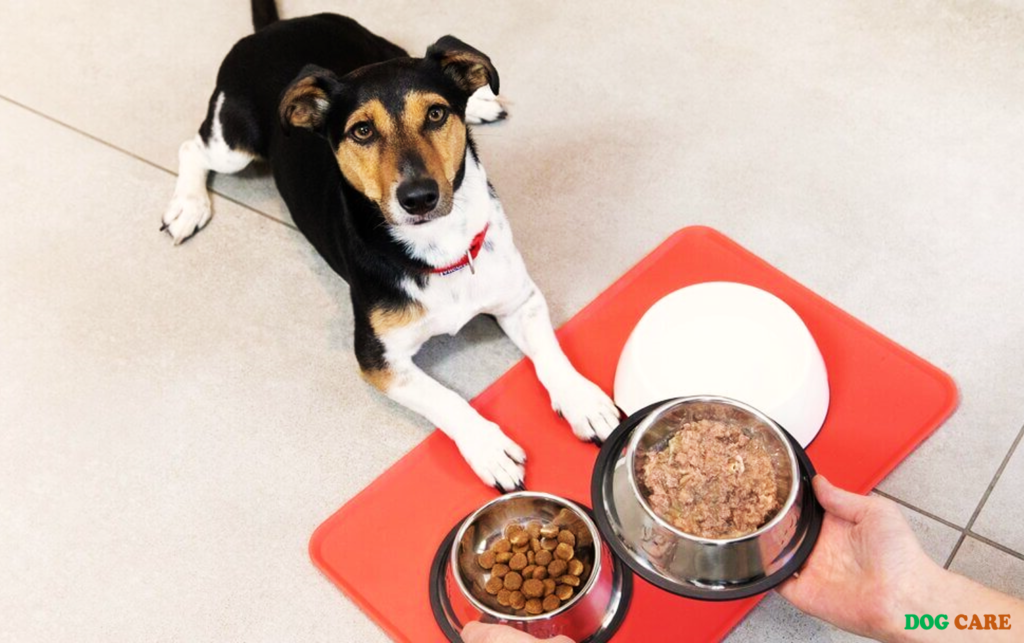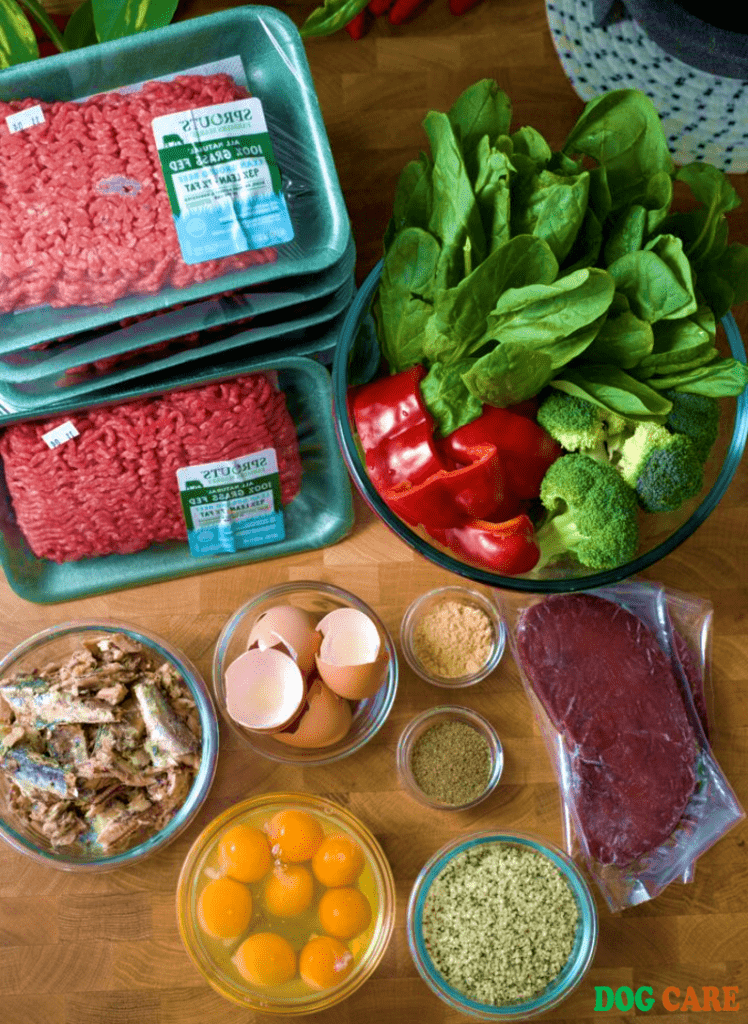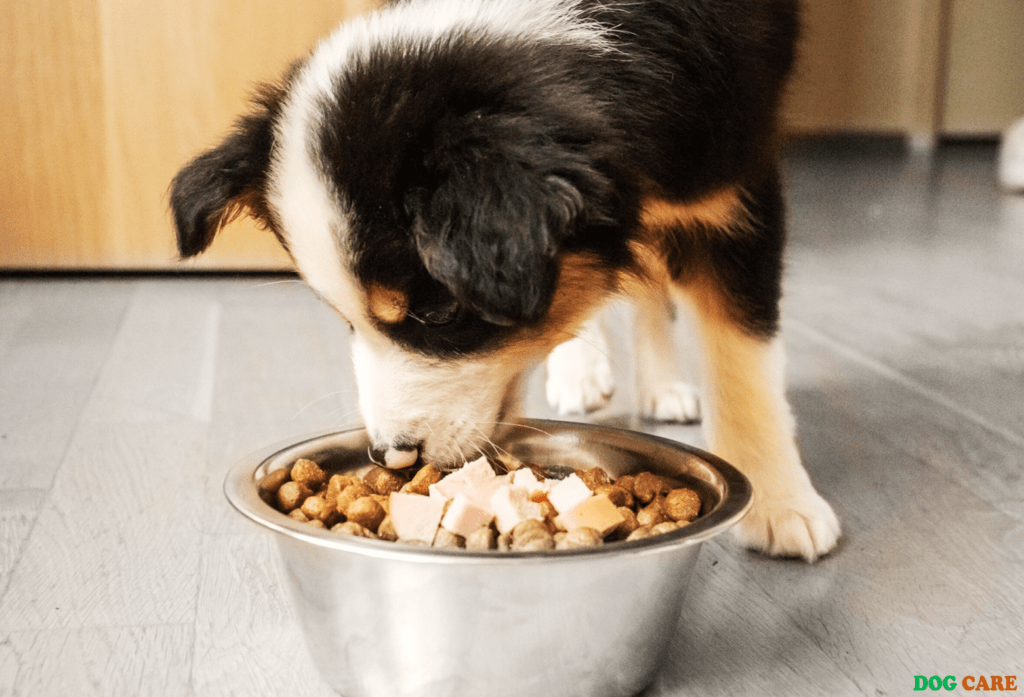When Can Puppies Eat Dog Food : Puppies can begin eating Dog Food at around four to six weeks of age. It is important to gradually transition them from milk or wet food to dry kibble during this stage to ensure a smooth dietary change.
The right timing for introducing dog food to puppies is crucial for their overall growth and development. By understanding the ideal age to start feeding puppies with dog food, pet owners can better support their furry friends’ nutritional needs. This will also help in preventing potential digestive issues and ensure that the puppies are receiving the essential nutrients they need for their well-being.

When Can Puppies Eat Dog Food : Weaning Stage
During the weaning stage, puppies transition from consuming their mother’s milk to solid dog food. This critical phase usually occurs when the puppies are around 3 to 4 weeks old. At this time, they start to show interest in their mother’s food and are ready to start the weaning process.
Mother’s Milk Nutritional Value
Mother’s milk is rich in essential nutrients crucial for the growth and development of puppies. It provides them with antibodies (colostrum) that strengthen their immune system, along with vital vitamins, minerals, and proteins. The nutritional value of mother’s milk is irreplaceable during the early stages of a puppy’s life, making it a cornerstone of their diet.
Transition To Solid Food
The transition to solid food should be gradual. Puppies can begin with moistened puppy kibble or specialized puppy food mixed with a small amount of warm water or milk replacer to form a gruel-like consistency. This helps them adapt to the texture and taste of solid food while maintaining adequate hydration. Over time, the amount of water or milk replacer can be reduced until the puppies are consuming dry puppy food exclusively.
When Can Puppies Eat Dog Food : Puppies’ Nutritional Needs
Puppies’ nutritional needs are crucial for their healthy growth and development. As they transition from their mother’s milk to solid food, it’s essential to understand the specific nutrients they require for optimal health. Providing the right balance of nutrients is key to supporting their growth and ensuring they thrive.
Essential Nutrients For Growth
Puppies require essential nutrients to support their rapid growth and development. These include protein, fat, carbohydrates, vitamins, and minerals. Protein is especially important for building and repairing tissues, while fat provides them with energy. Carbohydrates serve as a source of fuel, while vitamins and minerals play crucial roles in various bodily functions.
Importance Of Balanced Diet
A balanced diet is vital to meet puppies’ nutritional needs. It ensures they receive optimal levels of essential nutrients, supporting their overall health and well-being. Balanced nutrition also promotes healthy bone and muscle development, proper organ function, and a strong immune system. Additionally, a balanced diet lays the foundation for a healthy adult dog in the future.
In summary, understanding puppies’ nutritional needs and providing them with a well-balanced diet rich in essential nutrients is crucial for their growth and development. By meeting these needs, pet owners can set their puppies up for a happy and healthy life.
Introducing Dog Food
Introducing dog food to your puppy is an important milestone in their development. When your puppy reaches a certain age, it’s time to transition them from their puppy food to adult dog food. This process requires careful consideration of the timeframe for transition and factors to consider when choosing the right dog food for your puppy.
Timeframe For Transition
Transitioning your puppy from puppy food to adult dog food should typically occur around the age of 6 to 12 months, depending on the breed and size of your dog. Small breed puppies may be ready to switch to adult dog food sooner than larger breed puppies. It’s important to consult with your veterinarian to determine the appropriate timeline for transitioning your puppy to adult dog food.
Factors To Consider When Choosing Dog Food
When selecting the right dog food for your puppy, consider factors such as their breed, size, nutritional needs, and any sensitivities or allergies they may have. Look for dog food that is specifically formulated for puppies to ensure they receive the essential nutrients for their growth and development. Additionally, consider the ingredients, including the presence of protein, healthy fats, and vitamins and minerals.
Gradual Transition Process
When transitioning puppies to dog food, a gradual process is crucial to ensure their digestive system adapts smoothly. Sudden changes in diet can lead to digestive upset, so it’s essential to ease puppies into their new diet gradually.
Mixing Dog Food With Puppy Food
To begin the transition, mix a small amount of dog food into the puppy’s regular food. Start with 25% dog food and 75% puppy food for a few days. Gradually increase the proportion of dog food over the course of 7-10 days, monitoring the puppy’s reaction closely.
Monitoring Puppies’ Reaction To New Diet
Keep a close eye on the puppies’ behavior and stool during the transition. If you notice any signs of dietary intolerance or digestive distress, slow down the transition process and consult a veterinarian. It’s important to ensure that the puppies are comfortable and thriving on their new diet.
Monitoring Puppies’ Health
Monitoring a puppy’s health is crucial to ensuring they grow up strong and healthy. It’s important to pay close attention to their diet, as puppies have specific dietary needs that will change as they grow. When it comes to introducing puppies to dog food, it’s essential to be vigilant and watch for any signs of health issues. Let’s take a closer look at how to monitor a puppy’s health during the transition to dog food.
Signs Of Allergies Or Digestive Issues
When can puppies eat dog food? It’s essential to keep an eye out for any signs of allergies or digestive issues when introducing puppies to dog food. Look for symptoms such as vomiting, diarrhea, excessive scratching, or skin irritation. If any of these signs occur, it could indicate that the puppy is having trouble adjusting to the new food. In such a case, it’s best to consult a veterinarian to determine the best course of action.
Regular Veterinary Check-ups
Regular veterinary check-ups are vital during the transition period of introducing puppies to dog food. A veterinarian can provide guidance on the appropriate time to switch a puppy to adult dog food based on their breed, size, and individual development. They can also assess the puppy’s overall health and ensure that any issues are addressed promptly. This monitoring ensures that the puppy’s health is not compromised during the transition.
Frequently Asked Questions
Question 01 :- When Should Puppies Start Eating Dog Food?
Answer :- Puppies can start eating dog food around 4-6 weeks old, when they begin to wean off their mother’s milk. It’s important to choose a high-quality puppy food to support their growth and development.
Question 02 :- What Nutrients Should Be In Puppy Dog Food?
Answer :- Puppy dog food should contain essential nutrients such as protein, fat, carbohydrates, vitamins, and minerals to support their growing bodies. Look for a balanced formula specifically designed for puppies to ensure they receive all the necessary nutrients.
Question 03 :- How Should I Transition My Puppy To Dog Food?
Answer :- When transitioning your puppy to dog food, gradually mix in the new food with their current food over 7-10 days. This allows their digestive system to adjust without causing any upset. Monitor their appetite and stool during the transition period.
Conclusion
In sum, knowing when to transition puppies to dog food is crucial for their health and development. By understanding the right timing and selecting high-quality, age-appropriate options, pet owners can support their puppies in making a smooth and healthy transition to adult dog food.
This switch is a key step in their growth journey.


